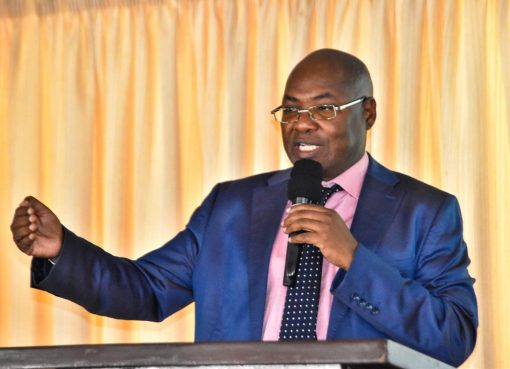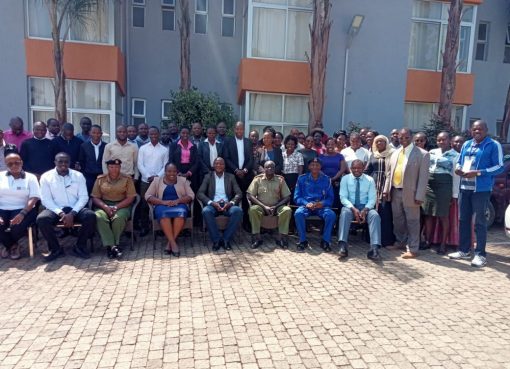Madaraka day remind Kenyans of the year they attained self-governance from colonial oppression way back in 1963.
The fight for independence was not a walk in the park as the Mau Mau fighters had to pass through thin and thick to rescue the country from the hands of the cruel colonial masters. A number of the Mau Mau fighters did not live to taste the fruits of independence while others have since fallen because of old age.
Mzee Wilson Kinyanjui Tamoo, 90, is one of the few Mau Mau fighters left to tell the tales of how they rescued the country from the hands of the colonial government.
KNA team visited the old man at his homestead at Olokrikrai area, in Narok North Sub County where he lives with his elder son, to get to know what he remembers about the struggle for independence. Though his hearing sense is slowly disappearing, we sat patiently with the old man to hear his side of the story in the fight for independence.
Mzee Tamoo remembers that he joined Kenya African Union Party in 1950 and on October 20, 1952, he was arrested after being suspected to be among a group of people then taking oaths in the forest.
The old man was taken to Elburgon and later Molo police station in a group of twenty other suspected members. They were later transferred to Kerengeti where the colonialists had established a small ‘Kangaroo’ court.
There, he recalls he was jailed for three weeks with forced hard labour after failing to pay an alternative fine of Sh. 20.
He was released in 1952 and returned back to his home in Narok. However, the following year, he joined the freedom fighters again and was unfortunately re-arrested.
This time round, he was taken to Nairregi Enkare detention camp where he stayed for three years and later transferred to Ngerua camp in Kiambu for one year.
Mzee Tamoo says the courts were meant to frustrate the efforts of the Mau Mau movement as they were brutally treated by being hanged upside down to force them to reveal the secrets of their colleagues.
“Some days, the colonial people would burn wet firewood in the prison rooms to make us suffocate and reveal all the secrets of the Mau Mau. But we had already taken an oath that we would not reveal our secrets even in death,” he said.
He recalls his main role in the Mau Mau uprising was to carry out investigations and give feedback to the leadership in the forest.
Among the veteran Mau Mau fighters, he collaborated with include Kurito Ole Kisio, Kaheri Waweru, Sikira Ole Kuyo and Kagio Kamau who were their leaders.
The Mzee says their operation areas in Narok County included Eor-Enkitok, Ilkarampuni, Sakutiek, Enesampurai and Loita, Olposimoru, Enaibelbel and Olopito forests.
Despite the struggles, the old man says he has not received any compensation from the British government as they had earlier been promised.
“Our lives have been marred by poverty, struggle and difficulties. We have lived thinking that one day we will get some monetary compensation from the government as a token of appreciation from the work we did to save the country from the hands of the colonialists,” says Mzee Tamoo.
The old man who serves as Narok North Mau Mau association chairperson regretted that many of his colleagues had died of old age related diseases after leading poverty ridden lives.
The area Mau Mau Association secretary Daniel Kamau urged President Uhuru Kenyatta to agitate for their compensation from the British government.
“I know our dear President understands all these struggles because his father was one of us. We request that he fast track the compensation so that many elders can benefit,” he said.
In 2013, the British government released Sh. 2.2 billion to compensate the deserving Mau Mau fighters where 5228 members benefitted.
The association has vowed not to relent in the push for full compensation so that a total of 70, 000 deserving Mau Mau veterans can be fully compensated.
By Ann Salaton





